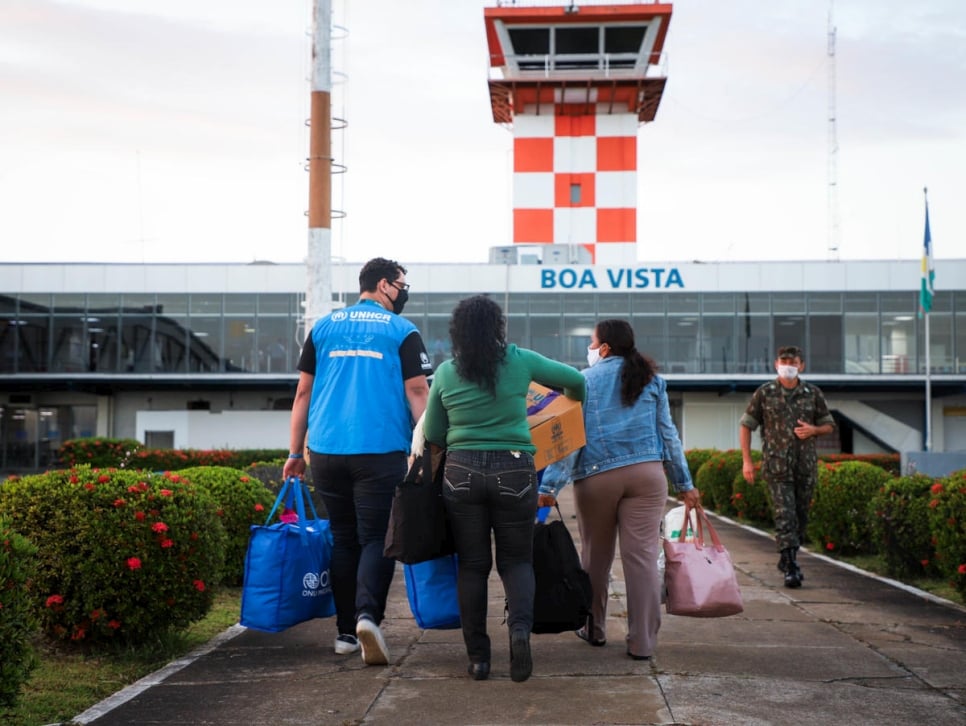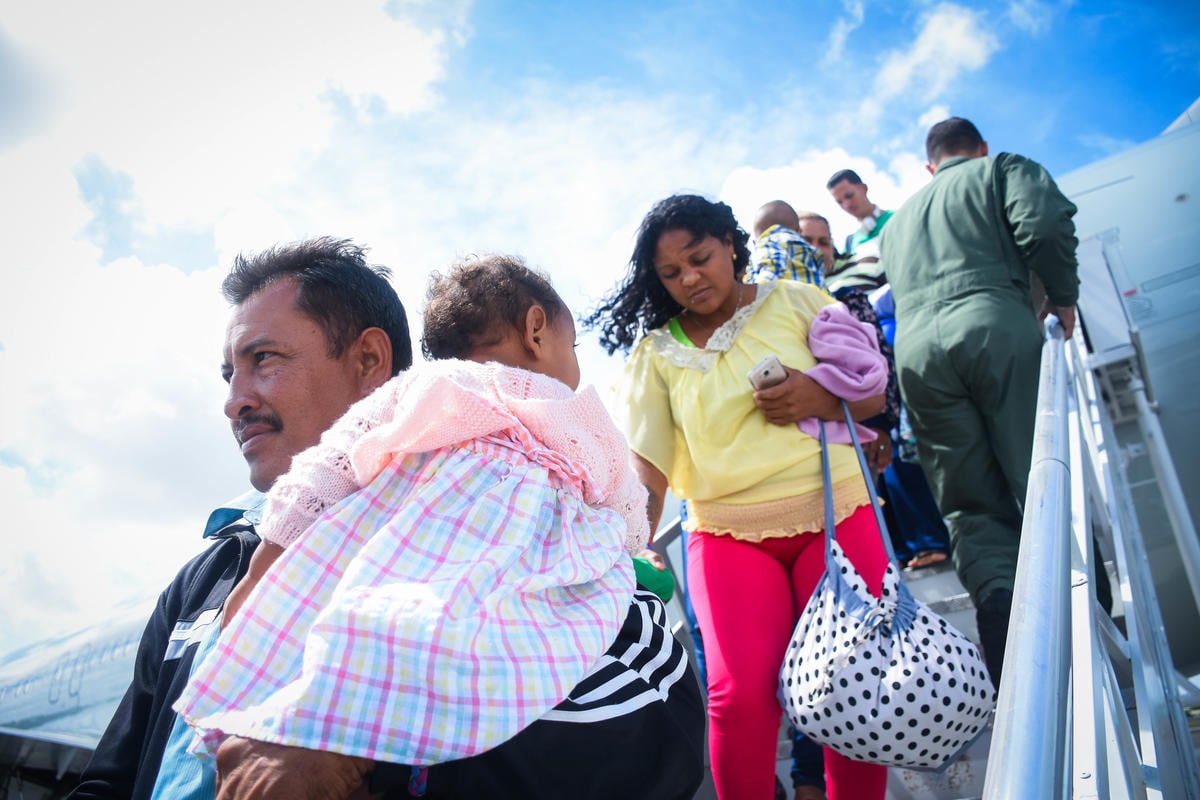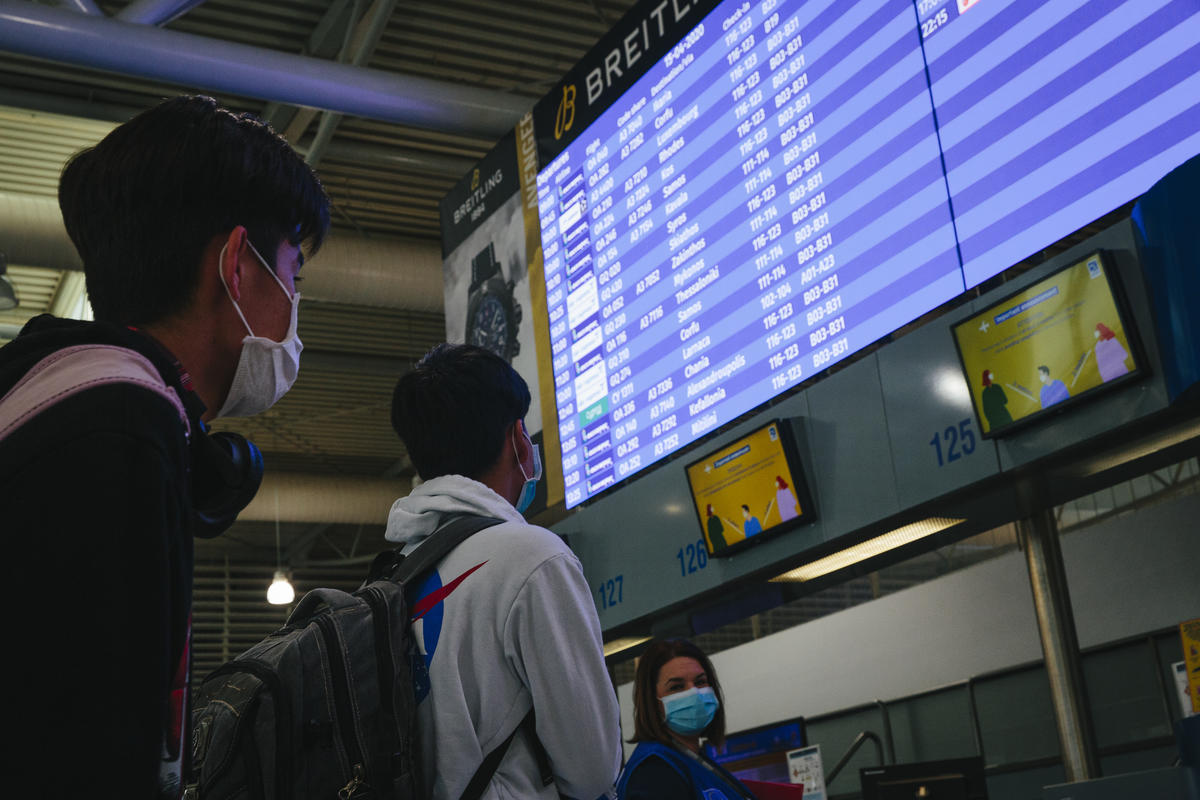Over 50,000 Sudanese moved in Chad; new camps to open
Over 50,000 Sudanese moved in Chad; new camps to open

GOZ AMER, Chad, May 4 (UNHCR) - More than 50,000 Sudanese refugees have now moved from the Chad-Sudan border to camps in eastern Chad. Three new camps are being prepared as the transfers become more urgent with the coming rains.
In all, 50,588 Sudanese refugees are now registered in the five camps in eastern Chad. Farchana camp hosts 10,287 refugees; Touloum has 11,279; Iridimi has 10,796; Kounoungo has 8,269; and Goz-Amer has 9,957.
They are part of an estimated 110,000 people who fled western Sudan's Darfur region over the last year and encamped themselves along a 600-km stretch of border between Sudan and Chad, where they continue to face militia raids from Sudan.
UNHCR and its partner agencies started relocating them to camps in the interior of eastern Chad in mid-January. The refugee agency plans to open three new camps soon - at Mille and Am Nabak in the north of the affected border zone, and Asterena in the south.
The relocation movements are becoming increasing urgent as the rainy season approaches, possibly by the end of this month. "We are confronted with huge logistic challenges," said Lino Bordin, UNHCR's Deputy Representative in Chad, now travelling in the east. "In theory, it takes about five hours to move 50 refugees in a truck from Mouraye to Goz-Amer camp, and three hours from Daguessa."
He added, "In reality, it can take up to 10 hours because our trucks get stuck in the sand or get a flat tire. Sometimes, a truck breaks down in the middle of nowhere and has to wait for several days before the spare part arrives."
In the meantime, the local Chadian population is feeling the strain after a year of sharing food and resources with the refugees, including 25 bags of sorghum recently donated to Goz-Amer camp by the préfet and sultan of Goz-Beida.
"We want to help our brothers and sisters, and we did, by giving them food and water, and by offering them hospitality on our territory. We supported them in the worst moments and cohabitation between them and us has always been excellent," said Mahamat Soudi Hassan, the sous-préfet of Koukou Angarana, 15 km from Goz-Amer. "But we are now reaching our limits. Our people are also poor and need help. We are asking the international community not to forget about the Chadian people."
The influx of Sudanese refugees risks destabilising an already fragile environment for the Chadians, who live in hay huts or mud houses, and struggle to survive in the harsh semi-desert terrain. Many of the refugees brought their cattle to Chad, where they now share the little bit of grass available to local livestock. Another worrying problem is the chopping of wood for cooking and building shelters on lands normally cultivated by the local population.
UNHCR and local authorities are exploring different ways to compensate the local population in eastern Chad. Discussions are ongoing with the World Food Programme and non-governmental agencies to help them, possibly by providing them with food during the rainy season.
Moving the refugees to camps where they can receive basic assistance will also help lighten the load on the local population. UNHCR should start relocating 7,300 refugees from Tissi to the new camp at Asterena by the end of this week. The agency will only have three weeks to move them before seasonal rains render the roads impassable. Asterena, which can accommodate up to 15,000 people, will also host refugees from Ade, where UNHCR has registered 9,382 refugees.
Meanwhile, in the north, the more than 10,000 refugees in the Touloum camp began moving into tents last weekend. They have been staying in temporary shelters made from plastic sheeting on the site. More than 1,200 tents have been set up to receive them and provide more adequate shelter, and another 400 tents will be put in place in the coming days.
At the same time, registration of refugees near the border continues in Kariari, where the Chadian governmental agency CNAR has registered 10,864 refugees so far. Another 15,320 refugees have been registered in the border town of Bahai. UNHCR and its partners have started distributing food and relief items in the area.








